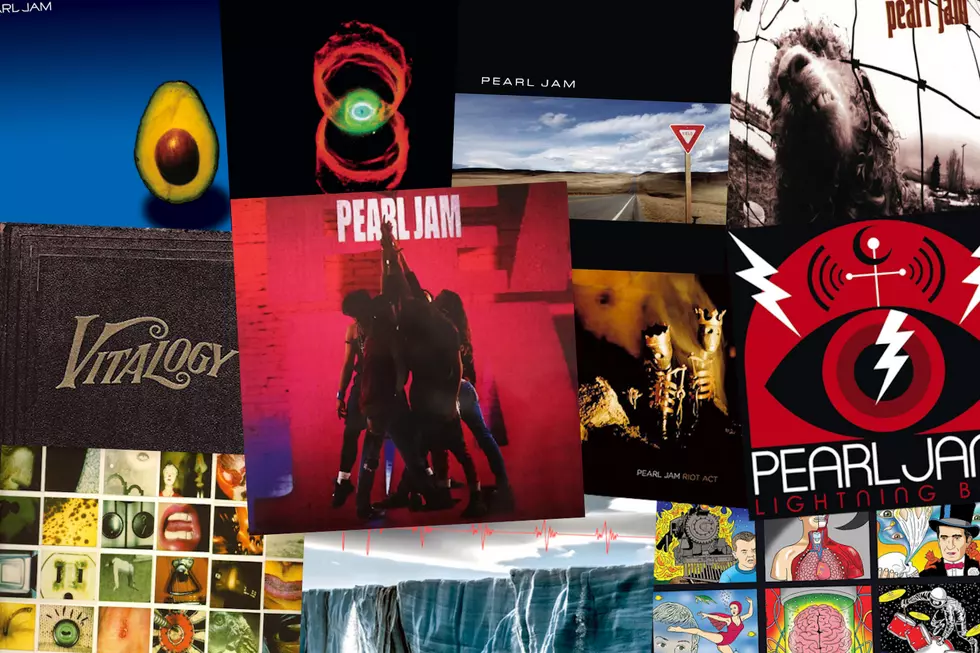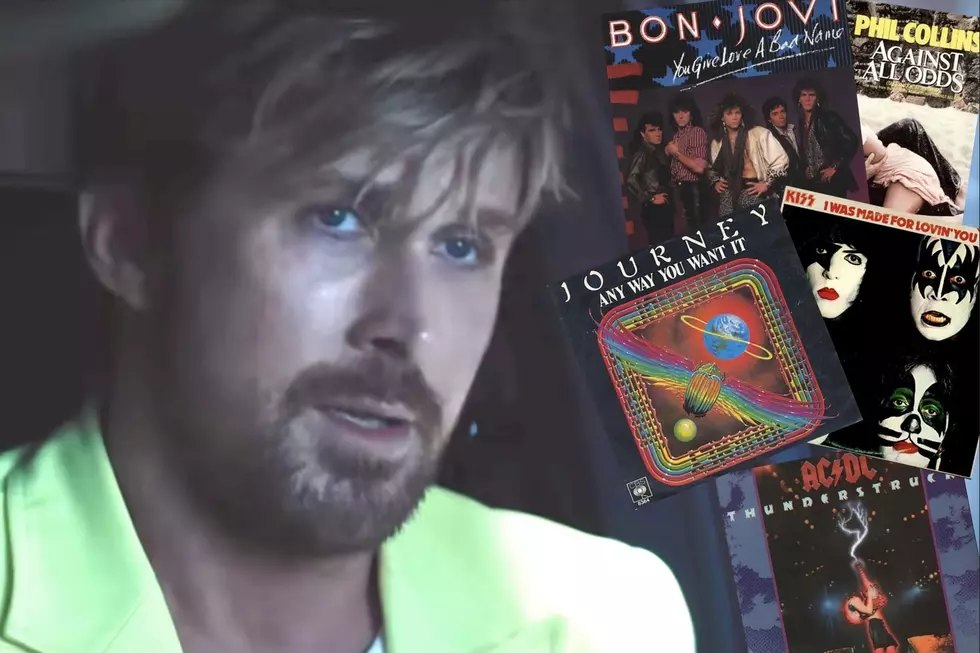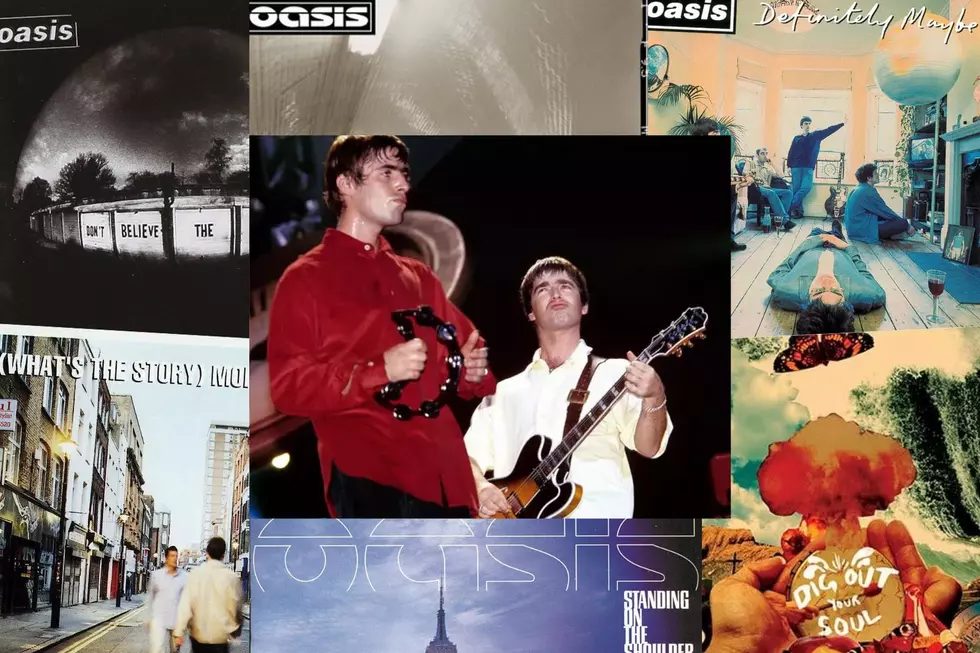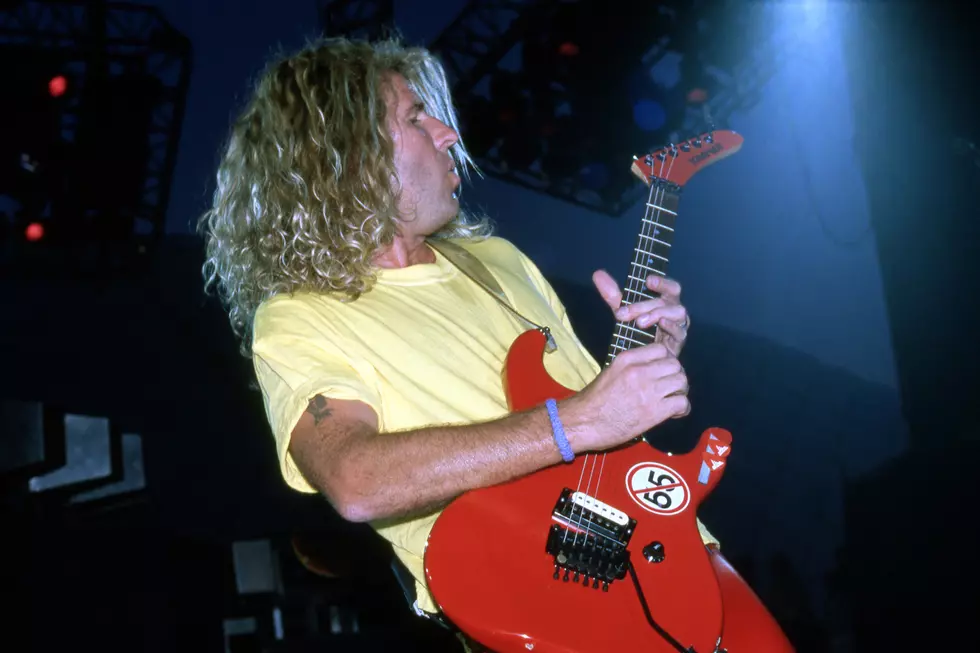
Underrated Pearl Jam: The Most Overlooked Song From Each Album
If Pearl Jam had retired following the release of their breakthrough debut album, 1991’s Ten, they still would have gone down in history as one of the era’s most successful acts.
That album, which has been certified 13-times platinum in the U.S., unleashed the Seattle-based band onto the world, part of the broader evolution of rock music into grunge.
But Pearl Jam didn’t hang things up. Instead the band forged a Hall of Fame career, releasing more than a dozen albums on its way to becoming one of the most prolific acts to break out of the ‘90s.
With so much material, it’s only natural that many quality songs will be overlooked. A deep dive into Pearl Jam’s catalog reveals many hidden gems that have been overshadowed by the band’s more celebrated radio hits, as you'll see in the below list of Underrated Pearl Jam: The Most Overlooked Song From Each Album.
“Release”
From: Ten (1991)
When a debut album is as commercially successful and universally acclaimed as Ten, it’s hard to find a truly underrated song. Still, the choice here is the album closer, “Release,” a gorgeous ballad whose lyrics touch on the pain and heartbreak suffered by frontman Eddie Vedder in his youth. As a teenager, he found out that the man who raised him was not his biological father - a shocking revelation that resonated for many years afterward. Those emotions rise to the surface on “Release,” as Vedder sings, “Oh, dear dad, can you see me now? / I am myself, like you somehow / I'll ride the wave, where it takes me / I'll hold the pain, release me.”
“Rearviewmirror”
From: Vs. (1993)
Is it possible for a song to be both an eternal fan favorite and severely underrated? In the case of “Rearviewmirror,” the answer is a resounding yes. The track’s dynamics are engrossing. It starts as a subdued, yet fast-driving tune before one of the band’s loudest and most cathartic choruses is unleashed more than halfway through. Lyrically, “Rearviewmirror” finds Eddie Vedder delivering his best Bruce Springsteen impression, telling the story of a life left behind in search of something more. Though never released as an official single, “Rearviewmirror” remains arguably the band’s best song.
“Tremor Christ”
From: Vitalogy (1994)
With its marching rhythm, sinister vibe and religious imagery, “Tremor Christ” was a far cry from the mainstream alt-rock fans expected from Pearl Jam. Still, that’s part of what makes it so fascinating, as the band managed to broaden its sound without straying too far from its grunge roots. "’Tremor Christ’ seemed to write itself,” guitarist Stone Gossard admitted in a 1995 interview with Musician magazine. “It was just a riff and a half, basically. On a muggy, beautiful New Orleans afternoon we came into a very cool studio and it poured out.”
“Smile”
From: No Code (1996)
Following the massive success of their first three albums, Pearl Jam purposely stretched their musical boundaries on 1996’s No Code. Though the album represented their most experimental release to date, there were still plenty of unadulterated rock moments. “Smile” is one of them - a churning track featuring fuzzed-out guitars and even some perfectly utilized harmonica.
“Brain of J.”
From: Yield (1998)
People often get lost in Pearl Jam’s grunge-god heyday - or even their later-career arena-rock ballads - and tend to forget that the band maintained a solid footing in punk music. Eddie Vedder has been a lifelong fan of the genre, often bringing punk influences into Pearl Jam’s music. “Brain of J.” is a high-octane track that finds the singer bellowing counterculture lyrics like “Who's got the brain of JFK? / What's it mean to us now? / Oh, it's sound insurance / But I can tell you, this is no lie.”
“Breakerfall”
From: Binaural (2000)
The punchy opening track to Pearl Jam’s 2000 LP, Binaural, “Breakerfall” features the band digging into its classic roots. The song’s pace and tone are reminiscent of the Clash, while its guitar lines and frantic energy recall the Beatles' “Helter Skelter.” Binaural is often buried among Pearl Jam’s least popular albums, its experimentation polarizing with even the band’s most dedicated fans. Still, a closer inspection shows several forgotten gems, with “Breakerfall” tops among them.
“You Are”
From: Riot Act (2002)
A pall of tragedy hung over Riot Act, Pearl Jam’s first album following the death of nine fans during their 2000 performance at the Roskilde Festival, as well as the world-altering 9/11 attacks. As such, the album felt darker and heavier than the band’s previous efforts, even when lyrics talked about love. Such is the case with “You Are”, the haunting and occasionally trippy track that lands firmly in the middle of the LP. The song was penned by drummer Matt Cameron, who also contributes rhythm guitar and backing vocals.
“Big Wave”
From: Pearl Jam (2006)
While a good song is often the result of long, arduous rewrites and rehearsals, occasionally the bones of a great track can be distilled to a basic formula. That’s the case with “Big Wave,” which combines a simple yet engaging guitar riff with a sing-at-the-top-of-your-lungs chorus. The energetic tune was inspired by Eddie Vedder’s love of surfing. And while it was never released as a single and only occasionally pops up in the band’s set lists, it did earn some extra attention when it was featured in the 2007 animated movie Surf's Up.
“Unthought Known”
From: Backspacer (2009)
From the first note, this track begins a steady build, eventually erupting into an expansive wave of sound before winding down once more. “It’s about a conversation with Catherine Keener, and a book,” Eddie Vedder said, explaining “Unthought Known”'s inspiration during a 2009 conversation with The Globe and Mail. “I got back late to my hotel in New York, and I pushed it that extra hour. I pushed the limits of how much you can drink and smoke, and this song came out of it. I think the thought of the song is that there are things that you know, and they’re in us, but we just haven’t thought of them. But they’re there, and we base decisions on them.”
“Future Days”
From: Lightning Bolt (2013)
The poignant ballad “Future Days” served as the closing track to Pearl Jam’s 2013 LP, Lightning Bolt. Starting first as a delicate piano piece, before building with guitar and further instrumentation, the song finds Eddie Vedder delving into the topic of human fragility - specifically, surviving the "hurricanes and cyclones" of life with a loved one by your side. "I think it'll be one of those that people cry to, hopefully get a little closer to their loved ones when they hear it," Mike McCready noted during a 2013 conversation with Billboard. "I was feeling that that night [at Wrigley Field in July 2013 when Pearl Jam debuted it]. I was feeling it with the whole crowd."
“Quick Escape”
From: Gigaton (2020)
A powerful rocker, “Quick Escape” was emblematic of the entire Gigaton album as it presents a raw, aggressive side to Pearl Jam that fans hadn’t seen in more than a decade. What makes “Quick Escape” especially memorable is its two emphatic guitar solos. The first, delivered by Stone Gossard, comes roughly halfway through the song and features some otherworldly production. “He came in one day and played it plugged straight into ProTools with no amp,” recalled producer Josh Evans in a conversation with Variety. “He was like, ‘Eh, that’s cool, but go ahead and mess with it.’ I wanted it to sound like an army of robotic bees crossed with the strings from Britney Spears’ ‘Toxic.’” The second solo, this time delivered by Mike McCready, gives “Quick Escape” its exclamation point, a wild fury of sound that carries the track to its final note.
A Complete Guide to Pearl Jam Lineup Changes
More From Ultimate Classic Rock









